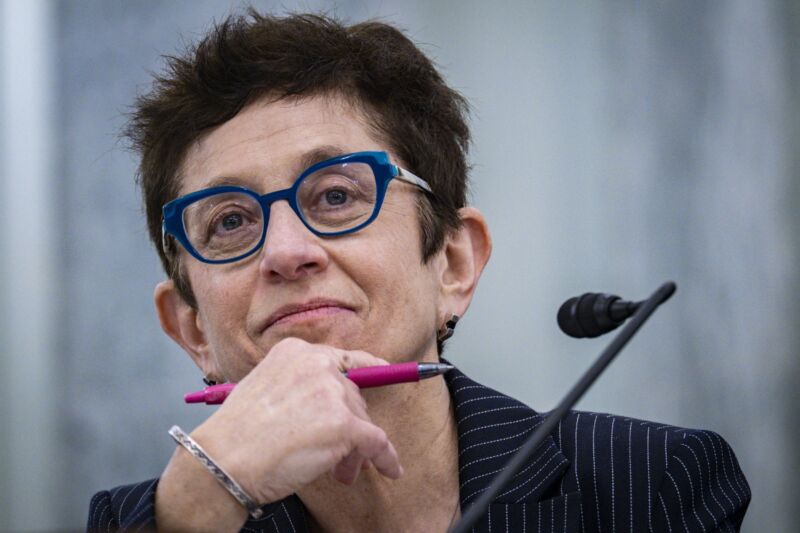
One year ago today, President Biden nominated Gigi Sohn to the empty spot on the Federal Communications Commission. Sohn, a longtime consumer advocate who worked for the Obama-era FCC, would have given Chairwoman Jessica Rosenworcel the tiebreaking vote needed to reverse Trump-era deregulation of the broadband industry, restore net neutrality rules, and pursue other rulemakings opposed by the commission's Republicans.
But Sohn is still waiting for the Senate to vote on her nomination. With Senate elections happening in two weeks, It's not clear that a vote on Sohn will ever happen.
"It has been a year since President Biden nominated Gigi Sohn to the FCC, which itself was 10 months into the first term of the Biden administration. It is long past time to vote on Ms. Sohn's nomination and confirm her to the FCC, where she can put her decades of experience to work for American consumers," CEO Chris Lewis of consumer advocacy group Public Knowledge said today. Sohn co-founded Public Knowledge in 2001 and led the group until taking a position as counselor for then-FCC Chairman Tom Wheeler in 2013.
Comcast apparently lobbied against Sohn behind the scenes despite not publicly opposing the nomination. Republicans vowed to prevent Sohn's confirmation, with Sen. Ted Cruz (R-Texas) and others claiming she would use a post at the FCC to censor conservatives—despite executives at conservative news networks Newsmax and One America News Network supporting Sohn's nomination and praising her longtime commitment to free speech.
Sohn faced further criticism from Republicans and the National Association of Broadcasters for being a former board member at Locast, a nonprofit online TV service that shut down after losing a copyright case launched by major broadcast networks. The Senate Commerce Committee in February sent Sohn's nomination to the full Senate, but only after a 14-14 party-line vote.
Democrats not quite united
Sohn could be confirmed by the Senate if every Democrat votes for her. But with Joe Manchin (D-W.Va.) and several other Democrats potentially opposing the nomination, a full Senate vote was never scheduled.
"We've been working relentlessly with Congress to get a confirmation vote," a White House spokesperson told The Washington Post this month. "The majority of the FCC hangs in the balance, and we want Sohn's talents, expertise, and experience at the commission."
The Post article noted that "AT&T, Comcast, Verizon and T-Mobile have spent over $23 million combined lobbying Washington so far this year, with Comcast leading the pack at $7.4 million, according to data from OpenSecrets." It's not clear how much was spent on opposing Sohn's nomination, as those numbers are not specified in lobbying disclosures. However, "Comcast this year paid former Senate majority leader Tom Daschle (D) and his firm $30,000 to lobby on the 'Status of FCC nominations,' among other issues, according to a July disclosure filing," the article said.
Comcast also hired lobbyists with ties to West Virginia and Arizona, possibly to influence Manchin and Sen. Kyrsten Sinema (D-Ariz.), as we wrote in January. Sinema voted for Sohn during the committee hearing but has still been seen as a possible holdout in a full Senate vote.
reader comments
167